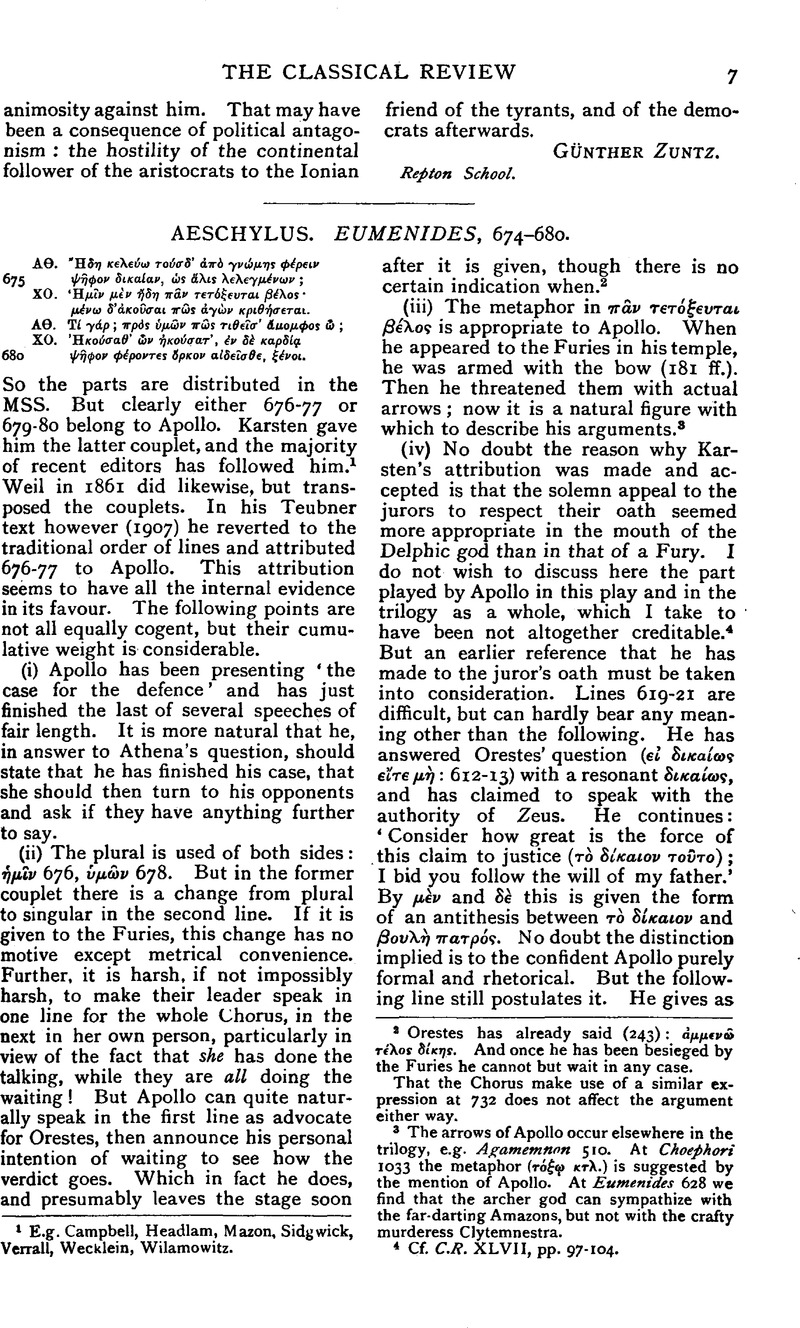No CrossRef data available.
Article contents
Aeschylus. Eumenides, 674–680
Published online by Cambridge University Press: 27 October 2009
Abstract

- Type
- Review Article
- Information
- Copyright
- Copyright © The Classical Association 1935
References
page 7 note 1 E.g. Campbell, Headlam, Mazon, Sidgwick, Verrall, Wecklein, Wilamowitz.
page 7 note 2 Orestes has already said (243): ἀμμɛνῶ τέλος δίκης. And once he has been besieged by the Furies he cannot but wait in any case. That the Chorus make use of a similar expression at 732 does not affect the argument either way.
page 7 note 3 The arrows of Apollo occur elsewhere in the trilogy, e.g. Agamemnon 510. At Choephori 1033 the metaphor (τόξῳ κτλ) is suggested by the mention of Apollo. At Eumenides 628 we find that the archer god can sympathize with the far-darting Amazons, but not with the crafty murderess Clytemnestra.
page 7 note 4 Cf. C.R. XLVII, pp. 97–104.
page 8 note 1 Cf. Mazon, Eschyle 11, 151. The Athenian dicast swore in cases for which the laws did not provide to give his verdict γνώμη τᾐ δικαι οτάτη (Demosthenes, XXXIX 40). Aeschylus probably had the terms of this oath in mind.
page 8 note 2 The tone of τοὺς ἐμούς τε καὶ (713) is a similar warning signal.
page 8 note 3 The οὐ μέμφομαι of Orestes at 596 hardly belongs to the pattern, but reminds us that the final solution will be satisfactory to him as well as to the Athenians—and the Furies (cf. 836 : ἐπαινἐσεις).


